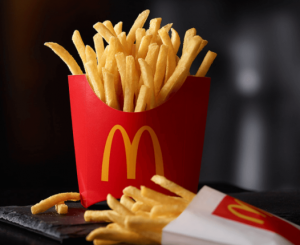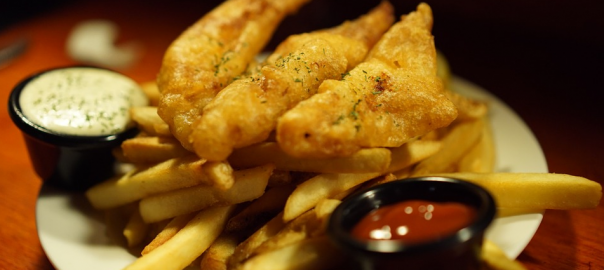I hear about this scenario a lot. Not just from families, from anyone who has a hectic, modern, over-scheduled life. You're out and about, after a soccer game, running errands, running late after a meeting, and you suddenly realize that you're hungry. So you decide to stop for a quick bite to eat. More often than not it's probably fast food. While we all know fast food isn't really good for you, we sometimes for get how often we're choosing to eat it. Or we think, “Well, I'm in a hurry so it's okay this one time.” Truthfully the fast food run is more frequent than most people realize. Especially if they're not taking the time to journal what and when they eat.
Trans-fats and brain health
Aside from the poor quality meat, high levels of fat and sodium, and high-calorie intake, it looks like there's even more reason to avoid that drive-through window. A recent study run by Dr. Gene L. Bowman, an assistant professor of neurology at the Layton Aging and Alzheimer's Disease Center at the Oregon Health & Science University, found that people with high levels of trans-fats in their blood had lower cognitive performance scores as well as lower brain volume. While the study was admittedly small and homogenous (100, elderly Caucasians living in Oregon), Dr. Bowman notes that the results of the testing were so clear that this particular pattern should not be ignored. Testing looked at nutrient levels in the body, cognitive function and included MRI studies. What does this mean? In plain English, there was a positive correlation between higher levels of trans-fats and lower brain function and smaller brain size. That's a scary thought.
Although trans fats have been removed from the Generally Recognized As Safe (GRAS) list they have not been banned for use in food products. Although at this point just about everyone knows that trans-fats are bad for our heart you'd think that would be enough to convince people to avoid them. Sadly, that is not the case as evidenced by how many products still contain trans fats. And with this new research it now it looks like trans fats are also bad for your brain. This provides even more reason to avoid them.
Avoiding trans fats
It's difficult to identify trans fats in fast food, and truthfully most people don't take the time to look it up on those posted-near-the-bathroom menu charts. The easiest suggestion is to assume that if it comes from a fast food restaurant and it's fried there is a high probability that it contains trans fats. It is important to note that although many fast food restaurants are proudly touting no trans-fats in their food.
 For example, a large french fries from McDonald's is technically one serving (so is a small french fries by the way). That large fries contains 510 calories and 24 grams of fat. That's 37% of the daily value of fat calories for someone who eats a 2,000 calorie a day diet.
For example, a large french fries from McDonald's is technically one serving (so is a small french fries by the way). That large fries contains 510 calories and 24 grams of fat. That's 37% of the daily value of fat calories for someone who eats a 2,000 calorie a day diet.
According to the McDonald's website, 220 of those calories are from fat, 3.5 grams are saturated fats, and there are 0 grams of trans fat.
This is a lie. We know this because of the ingredients list:
Potatoes, Vegetable Oil (Canola Oil, Corn Oil, Soybean Oil, Hydrogenated Soybean Oil, Natural Beef Flavor [Wheat and Milk Derivatives]*), Dextrose, Sodium Acid Pyrophosphate (Maintain Color), Salt. *Natural beef flavor contains hydrolyzed wheat and hydrolyzed milk as starting ingredients.
That hydrogenated oil is a trans fat. So how is McDonald's allowed to claim 0 trans fats in this single serving of large french fries? This is due to a Federal ruling that allows them to claim no trans fats if there is less than .05 per serving. But remember the changing serving size. A small is one, a medium is one, and a large is one. That seems like pretty bad math to me. Because it's considered one serving they can say 0 grams of trans fats, but it all adds up pretty quickly.
Trans fats at the grocery store
Avoiding fast food snacking
- Have a protein bar available – I almost always have a healthy protein bar in my glove box or purse for an emergency snack. Look for bars that don't have a high sugar content and provide balanced proteins and fat.
- Stop at a grocery store and buy an apple and some raw nuts. It's a delicious and healthy snack. Often it costs far less than that drive-through meal. The trick is not to get side-tracked in the grocery store and start to shop for other things. Treat it like a fast food run, you can always do your grocery shopping later.
- Plan ahead. If you know you are going to be out and about you can plan ahead and bring food with you. Using a handy snack container, such as a Laptop Lunchbox, you can pack a healthy snack and skip the trans-fats.


